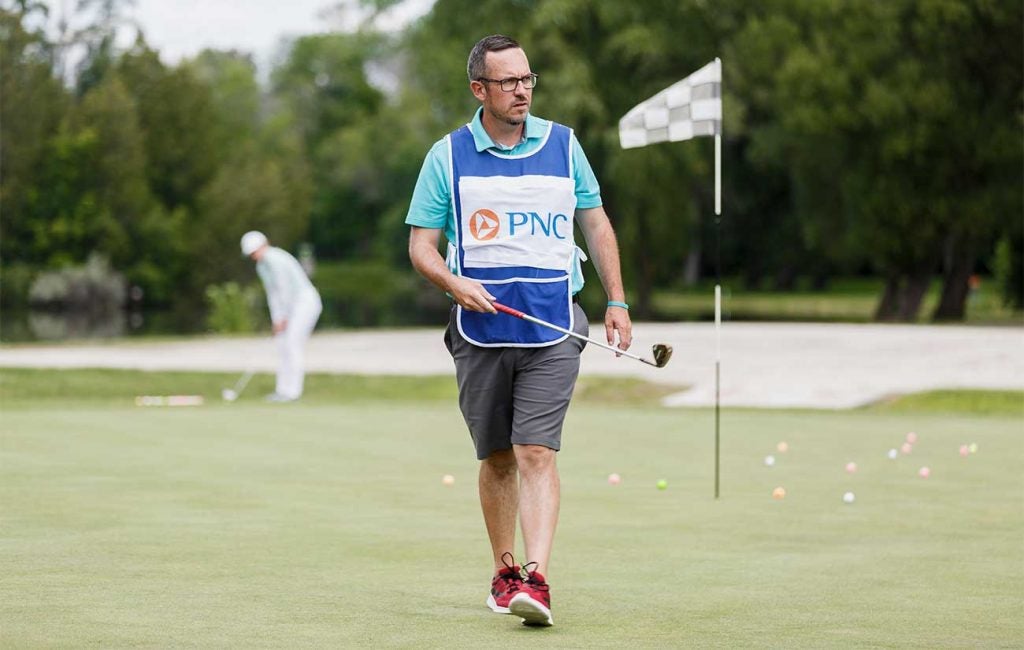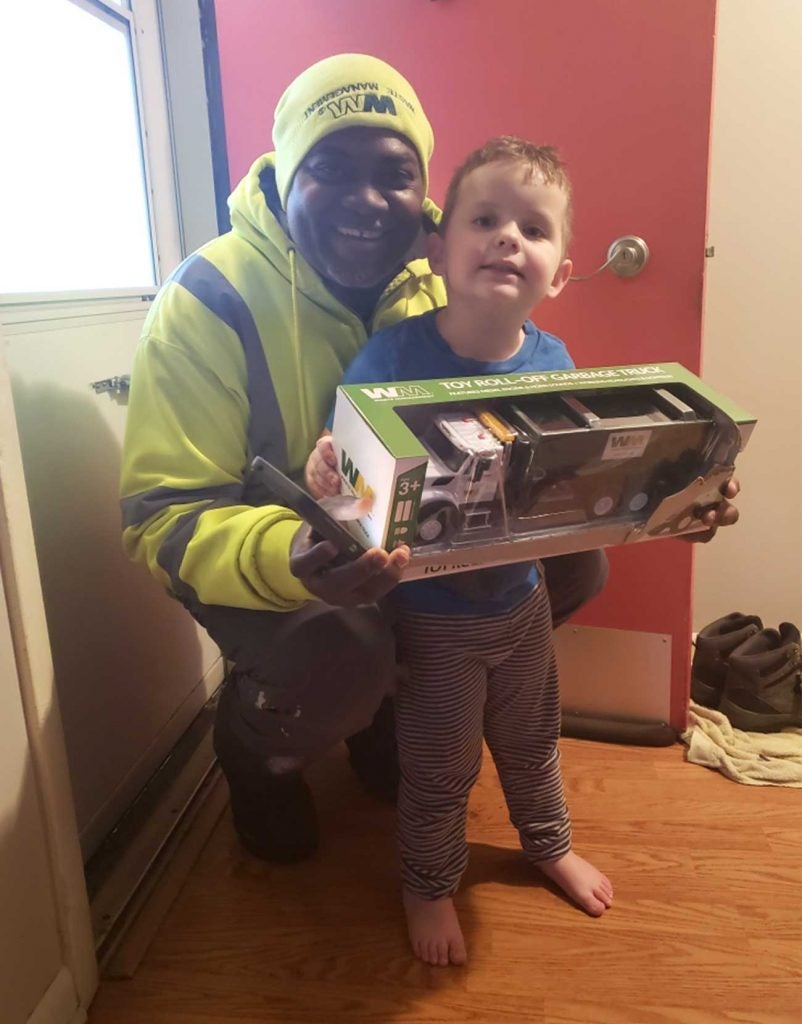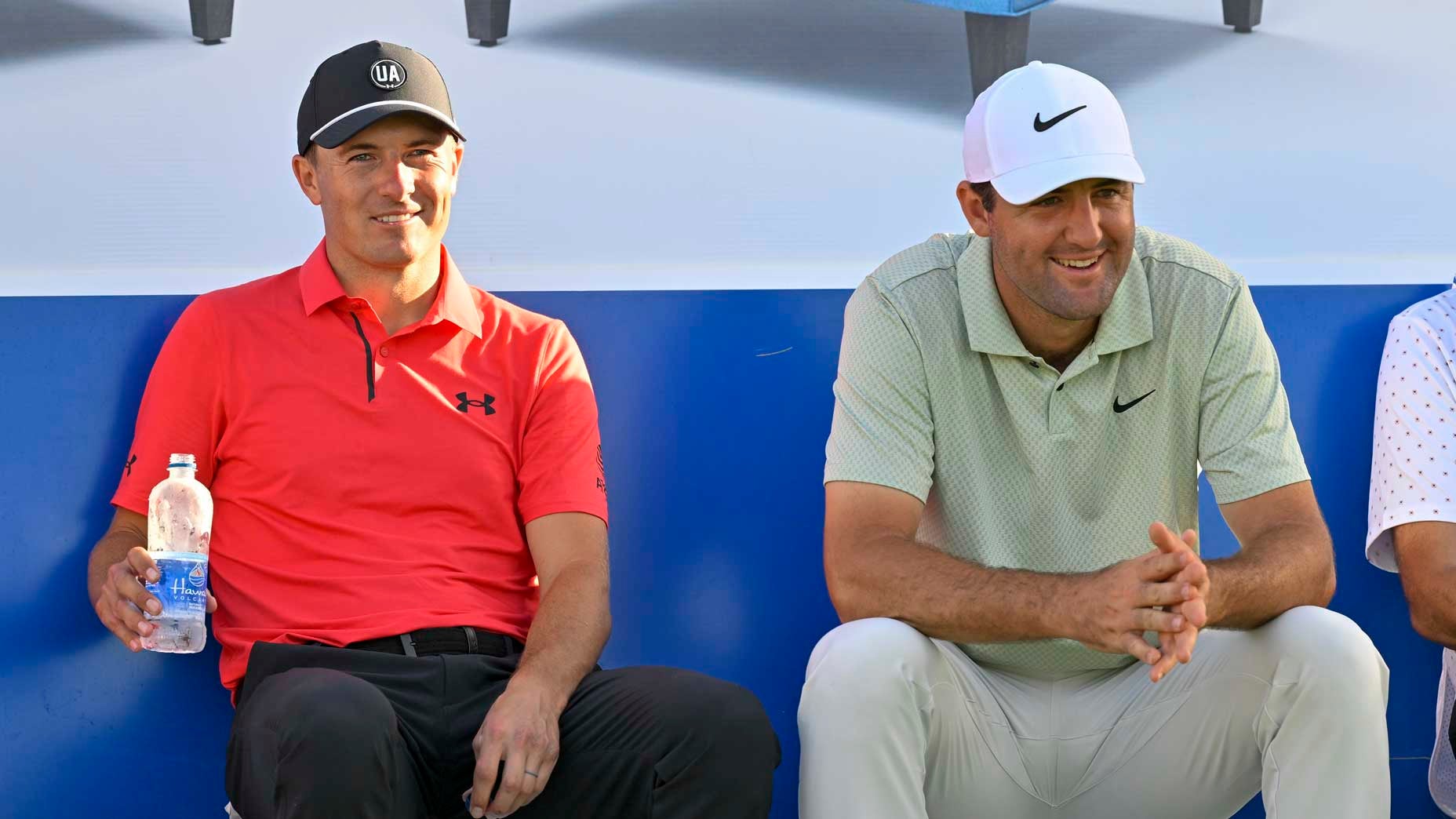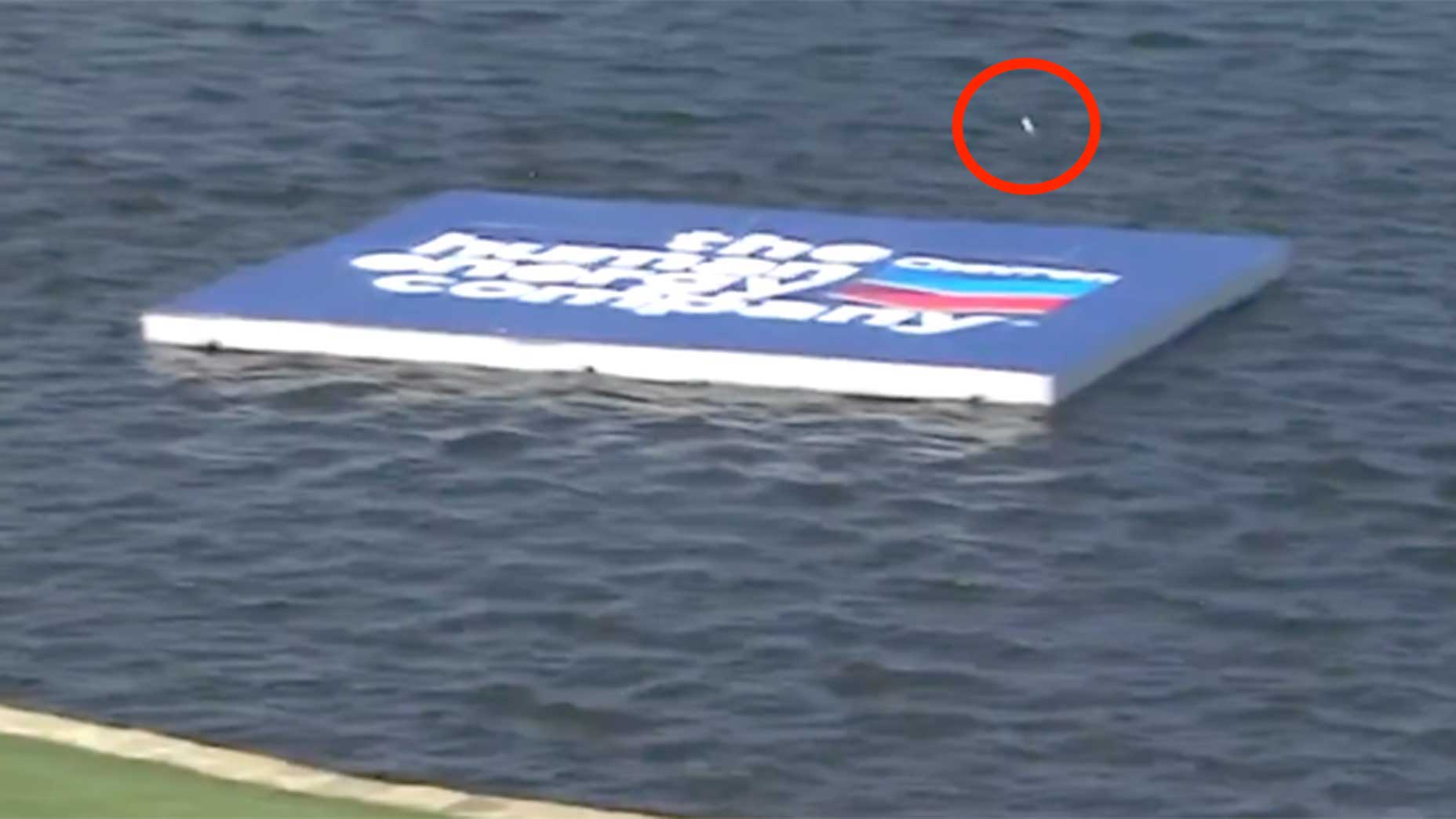 The Ryder Cup is behind schedule in more ways than one | Tuesday Takes
The Ryder Cup is behind schedule in more ways than one | Tuesday Takes
Meet the man unearthing the triumphs (and tragedies) of Monday-qualifier life
It’s Monday, and Mondays are Ryan French’s busiest day of the week. On this particular one, French sits in the clubhouse at the Orchards Golf Club in Washington, Mich., three days before the first round of the inaugural Rocket Mortgage Classic. He has just finished caddying for Ben Albin, who hit 17 greens and shot 70 but finished four strokes out of a playoff in this week’s PGA Tour Monday qualifier.
An hour from now French will broadcast the 5-for-2 playoff on Periscope. The winners will earn coveted spots in the Rocket Mortgage at Detroit Golf Club, which is 30 miles south, but, in figurative terms for most of these guys, so much further. After the playoff, French interviews Wes Homan, a 35-year-old with three kids under 3 who plays just twice a week yet still managed to shoot 66 and emerge from the pack to grab one of the two spots. Homan will make his 10th career PGA Tour start at 1:55 Thursday afternoon, after battling the putting yips in 2017.
All of this is reported by French via Twitter. It was only 14 months ago he activated the account — Monday Q Info (@acaseofthegolf1) — but he’s already acquired more than 18,000 followers. That number keeps growing as French reveals the triumphs and tragedies of these weekly rituals. For French, Monday is moving day.
“It’s insane,” French says. “I say it all the time and I just repeat myself, but I thought if I got 500 followers, I thought that would be crazy. Like today in the Monday qualifier, everybody knows who I am. It’s just weird. And the account, I never thought it would get anywhere close to this, ever. I think it’s just an under-reported side of golf.”
And there’s an audience for it.
* * * * *
Every Tour event has a pre-qualifier of roughly 150 players a few days before the Monday qualifier for those who don’t have the required Korn Ferry or PGA Tour status. Those who advance to Monday meet other starving pros in fields of roughly 50 to 125, depending on the location, where there are usually four spots up for grabs. But, as French notes, even those who advance to the main event still face long odds. They already wasted a potential practice day at the course due to qualifying, and now they have to find a hotel, extend car rentals and handle other logistics. That leaves Tuesday as the only day to see the course because Wednesdays are often shut down for pro-ams.
Want to be a pro golfer? Korn Ferry Mon Q edition
There is a way that if you went to all 37 different KFT Mon Q sites and shot a total of 200 under par….that you didn't get into a single event.
Here is my end of the year KFT Stats pic.twitter.com/8lzbld0Vh3
— Monday Q Info (@acaseofthegolf1) August 6, 2019
“I think golf is thought of as so elitist, epically pro golf — private jets and big money and handing out gloves — so I don’t think people knew this side of it existed,” French says. “They know minor-league baseball because everyone’s been to a minor-league baseball game. It’s organized. Monday qualifying is just so fractured. I don’t think people knew it existed, at least your casual golf fan didn’t. They didn’t realize there were people grinding out there sleeping in cars, and I think that’s the human interest of it.”
French’s fascination with the lower-rung tours started after he graduated from Michigan State. While his friends hit swanky resorts or bucket-list gems, French and his father found their calling as mini-tour vagabonds. Twice a year for about a half-dozen years they’d hit the road and caddie on a developmental tour. French got to know many of the players and later caddied for some when opportunities arose at Q-School or on the Korn Ferry Tour. He swiped a caddie bib from every stop he made. His closet now houses a collection of memories from defunct and active circuits — the Hooters Tour, the Hopkins Tour, the Dakotas Tour, the eGolf Tour, the Symetra Tour and so on.
“It’s a really cool way to see awesome golf,” he says. “Or anytime there was an event close and I could get time off work, I’d go do it.”

A 42-year-old married father of two (Annette, 6, and Jackson, 4), the Michigan native now lives in the Chicago suburbs and is a stay-at-home dad. He used to run a group of restaurants, but that changed when Jackson ran into health issues. Jackson vomited every day since birth until he was 2 1/2, even though he wasn’t sick. For a while Ryan and his wife, Stephanie, thought Jackson’s troubles stemmed from over-feeding or lactose intolerance. Then they saw an allergist and a gastroenterologist. Jackson was eventually diagnosed with Syringomyelia, the same spinal-cord disease that afflicted golf legend Bobby Jones. (The Frenches are heavily involved in the Bobby Jones Society, which raises funds for the Chiari & Syringomyelia Foundation.)
In June 2017, at 2 1/2, Jackson had brain surgery. He’s doing much better now. As Ryan says, “It’s life altering, not life threatening.” The Frenches lost their long-term nanny around the time of the surgery, so Ryan left his job to stay home with Jackson. That’s when he decided to create his Twitter account.
He came to know so many of the players and storylines over the years while on the road, and he was constantly checking in on his buddies anyway. Why not tweet about it?
“It was really just something to do to not watch cartoons all day,” he says.
His audience slowly grew with every tweet, interview, tournament and story. His following includes pros, caddies, reporters, analysts, coaches, teachers, agents and more. Some of his tweets have appeared on Golf Channel. Brendan Steele and Zac Blair are just a couple of the pros with whom he trades DMs. Harold Varner III was one of the first big-name players to follow French on Twitter, and he still remembers when the PGA Tour’s official account followed him in April, when he had about 10,000 followers. French called that moment “surreal,” another sign that he was onto something.
“The cool part about [the account] is you get a little bit of that back story and start to understand what goes into all of these qualifying events,” Steele says. “It’s not just about the top players in the world. You think it’s so easy for everyone watching Tiger and Jordan and Rickie, and you don’t realize how hard it is for guys searching and clawing to get just one Korn Ferry start.”
The grind:
Mon- Paul Apyan drove 4.5 hours TN to KY for Pre-Q
Tues- Shoots 68 to get thru- drives 4.5 hrs home
Thurs- Drives 3.5 hours to SwingThought event,
Shoots 66-66 wins
Today- drives 3.5 hours home
Tomorrow- 3.75 hrs to Mon QIn a '07 Accord with 263k miles on it
— Monday Q Info (@acaseofthegolf1) July 13, 2019
Steele says he enjoys the information French provides and likes to keep tabs on some friends who compete at qualifiers. He still fondly remembers the only Monday qualifier he ever advanced through, back in 2008 when he had conditional status as a rookie on the Korn Ferry, then the Nationwide Tour. The event spilled into the next morning and he made two birdies to get in to the Chitimacha Louisiana Open. Overjoyed, he immediately called his dad. Now a 36-year-old with three career PGA Tour wins and more than $14 million in career earnings, Steele still calls that day he got through the qualifier the greatest feeling of his golf career. It’s that difficult to do.
* * * * *
French runs the account on his own but a friend helps connect him with players. He works out of his house but will either attend or caddie a handful of tournaments a year, as was the case during Rocket Mortgage week in Michigan, where he crashed with his brother who lives nearby. For events he can’t see in person, French taps club members and PGA Section workers to track playoffs and assist with updates. But as his following has grown, it’s been easier to get information.
While the account was originally dedicated to Monday qualifying results and factoids, it’s morphed into much more. French frequently dabbles in the intricacies of the sport’s smaller circuits and mostly unheard-of mini-tour stops, where a check means a mortgage payment and not necessarily a second Lexus. He’ll also post player interviews via easily digestible screenshots of direct messages on Twitter, which is beautifully simplistic and symbolic of the Monday-qualifier life French covers — no frills.
His prep for Mondays begins on Sunday nights, sometimes earlier. French sidles up to his desk and searches for scoring links to notable qualifiers before he evaluates the field. He’ll note any big names and Google players he’s not familiar with. That background information is crucial, as it helps him get to know the competitors. “Most of these guys chase Monday after Monday after Monday, so their stories are bound to come up,” he says.
French loves to trumpet the players’ talents and the sacrifices they make to achieve their dreams. There’s the construction worker and the landscaper, the struggling pro and the college dropout, the man who lost everything and more.
“There are so many good golfers,” he says. “But for 90 percent of pro golfers, life is not as glamorous as people think.”
* * * * *
“Today, it’s windy in Michigan,” French says, still in the clubhouse outside of Detroit. “Two people who shot 66 are not getting in.”
Doc Redman was among those who avoided the 5-for-2 playoff that day. The 2017 U.S. Am champ turned pro in 2018 but hadn’t had his breakthrough, not until now. He shot 62 to sail into the Rocket Mortgage, where he parlayed that spot into a runner-up finish and $788,400 — aka life-changing money — plus special temporary membership on the PGA Tour. Redman also earned an Open Championship invite, where he tied for 20th and cashed another $91,350.
ADVERTISEMENT

“No, no, it hasn’t sunk in,” Redman said after his finish in Detroit. “I knew what was at stake, but I was trying not to think about it.”
“I have been to a lot of Monday qualifiers,” French says, “and now looking back after he finished second and made over $700,000, it’s sort of anti-climactic the moment someone posts a score at a Monday qualifier.” French was in the clubhouse before Redman finished and saw him come in. Redman handed in his card, his 62 was posted and then it was crickets — not because everyone was in shock, but because no one was really there. About 10 people were present to shake Redman’s hand. “It turned into a career-changing week [for him], but there’s no real excitement at a Monday qualifier. He just went to his car.”
The Rocket Mortgage Classic was a banner week for the Monday-qualifier crowd. Redman was the runner-up, but the winner, Nate Lashley, failed to Monday qualify. He got in as an alternate and became the first alternate to win on Tour since 2016.
Tour weeks like that are extremely rare, two Monday warriors (one of whom who had to wait even longer) finishing that high, not to mention 1-2. A 64 might win your club championship by five, but at 18-hole Monday shootouts — where players are firing at virtually every stick and trying to drain every putt — 64 is often not good enough. The best golfers in the world advance and the best golfers in the world go home. Until next week.
* * * * *
It’s Monday, and Mondays are also Jackson French’s busiest day of the week, although not for the same reasons as his dad. On Mondays, Anthony swings by. He is the French’s garbage collector. Jackson loves garbage trucks, and every morning he’ll wake up and ask if it’s garbage day. When the hallowed day finally arrives — they have a countdown sheet in his room — Jackson and his dad rise at 5:30 and greet Anthony at their door. They have hot coffee and a fresh donut ready for him. Anthony often brings gifts for Jackson. Toys, a Waste Management bib, coloring books, and treats made by his daughter, who is a baker.

Jackson’s health is improving. He still battles migraines and suffers from sudden falls. He has therapy four days a week and needs a brain MRI every six months, but many of his symptoms are better or gone. There’s still some fluid in his spine that can’t drain properly due to the pressure, and his condition is something they’ll have to monitor for the rest of his life.
The medical bills are piling up. Stephanie, a nurse, has had Type 1 diabetes since she was 5, and her insulin pump is another costly expense. Soon French says he’ll need to re-enter the workforce, unless he can start making money with his fast-growing hobby. Either way, he’s loving his new venture.
“I’m having a lot of fun right now,” he says. “I’m a golf nerd. The fact that I text with pro golfers is pretty surreal to me. I love the insight to it. The fact that I was a district manager for some restaurants to this — it’s kind of crazy.”
On this particular morning, the Frenches say goodbye to Anthony and then go back to their routine. Ryan mixes a Crystal Light Energy (he’s not a coffee drinker) and makes breakfast for Jackson and Annette. After Stephanie heads to work, Ryan and the kids usually go for a quick bike ride before returning home, where the kids play in the yard. Ryan goes outside with them and fires up his laptop from the patio. Monday has arrived.
To receive GOLF’s all-new newsletters, subscribe for free here.
ADVERTISEMENT






